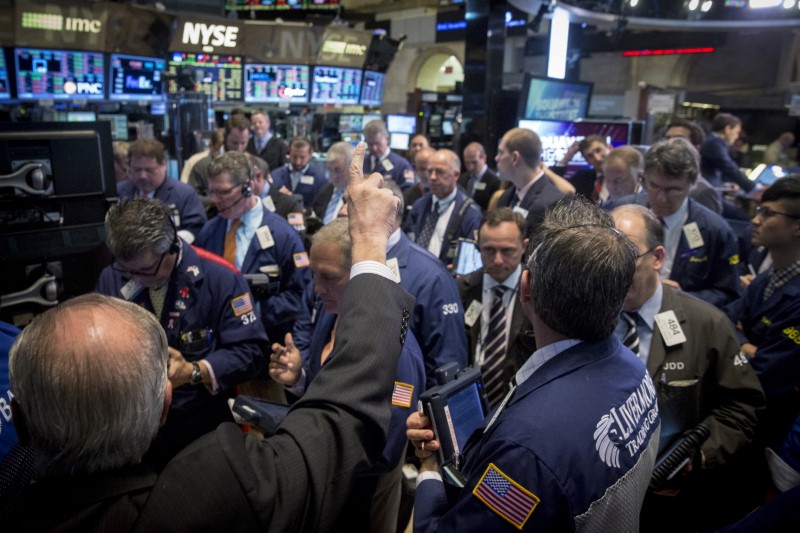LONDON (Reuters) - Bond trading revenue at the world's top banks rose last year for the first time since 2012, thanks to increased activity after Britons' voted to leave the European Union and Donald Trump won the U.S. presidential election, a survey showed on Thursday.
The 9 percent rise in fixed income, currencies and commodities (FICC) trading last year failed to avert an overall 3 percent fall in revenue, however, due to a slump in equity and investment banking division (IBD) revenue, said industry analytics firm Coalition, based on its analysis of their public disclosures and independent research.
The 13 percent fall in equity trading revenue was the biggest since 2008, when the global credit crunch crashed world markets and plunged the global economy into recession.
FICC revenue was boosted by a 39 percent surge in the second half of the year, led by "robust growth" in G10 rates trading.
The FICC rebound follows years of post-crisis decline, as banks have had to adjust to reforms compelling them to hold more capital and liquidity and reduce the amount of bonds they can hold on their books. This has resulted in a continuous reduction of staff, and the exit from some business lines altogether.
Overall FICC trading revenue at 12 of the world's biggest banks rose to $75.9 billion from $69.9 billion in 2015, Coalition said. The $37.7 billion accrued in the second half of the year was the best July-December period since 2012.
Coalition tracks Bank of America Merrill Lynch (NYSE:BAC), Barclays (LON:BARC), BNP Paribas (PA:BNPP), Citigroup (NYSE:C), Credit Suisse (SIX:CSGN), Deutsche Bank (DE:DBKGn), Goldman Sachs (NYSE:GS), HSBC, JPMorgan (NYSE:JPM), Morgan Stanley (NYSE:MS), Societe Generale (PA:SOGN) and UBS.
Within FICC, G10 rates trading revenue jumped 26 percent to $25.9 billion, and credit trading rose 20 percent to $14.8 billion.
That offset declines in G10 FX, securitization, emerging markets and commodities. A "significant" decline in hedge fund activity, after many suffered a bruising 2015, was to blame for the fall in foreign exchange trading revenues, Coalition said.
HEADCOUNT DOWN AGAIN
Equity trading revenue, including cash equities, equity derivatives, prime services (serving hedge funds) and futures and options, slumped 13 percent to $43.4 billion from $49.8 billion the year before.
The weakness was driven by poor performances in cash and derivatives. Cash equity revenue fell 17 percent to $9.5 billion and derivatives revenue fell 21 percent to $12.8 billion.
Investment banking division (IBD) revenue, comprising equity and debt capital market activity, and mergers and acquisitions, fell 9 percent to $36.8 billion. Within IBD, equity capital market operations were particularly weak, with revenue falling 35 percent to $6.3 billion.
Adding it all together, the world's biggest banks raked in $156.1 billion in revenue last year across FICC, equities and IBD, down 3 percent from $160.2 billion the year before, Coalition said.
Despite the rebound in bond trading, however, the longer term attrition in headcount showed no sign of slowing.
The aggregated number of FICC front office staff - covering sales, trading, and research - at the top 12 global banks fell 7 percent to around 17,500 in 2016, down from 18,800 the year before. That's 30 percent lower than in 2011.
Aggregate equity headcount fell 4 percent to 18,200 and IBD staffing fell 1 percent to 17,500. Overall headcount fell 4 percent to 53,200, marking a fall since 2011 of more than 20 percent, according to Coalition data.
